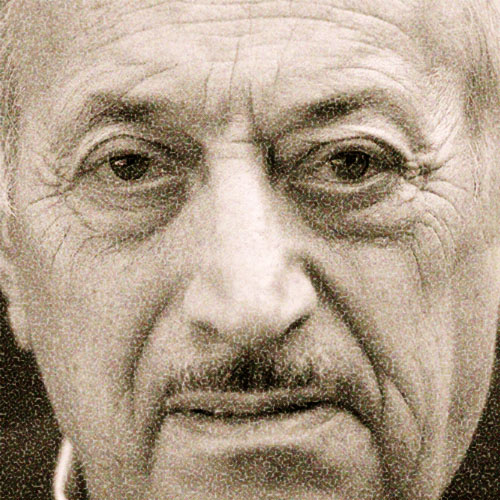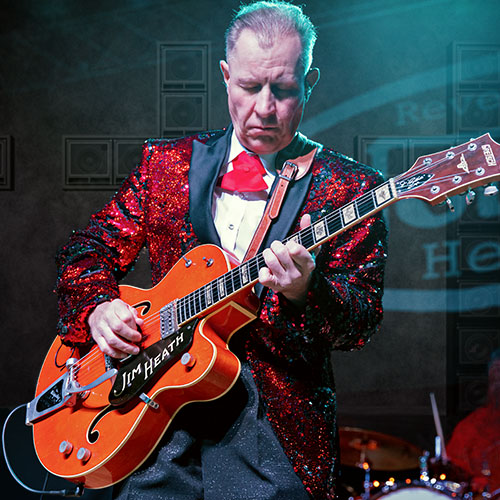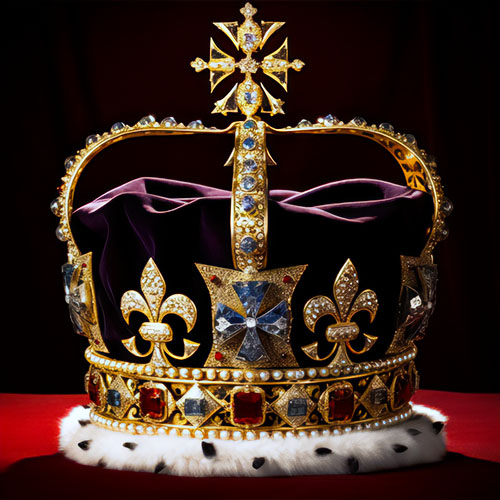Politics in the 1990s will look like it did in the 1790s. We’re going back to George Washington’s time.
Politics and Sausage, Everyone
He got himself elected president without making a single campaign speech. So did Thomas Jefferson and the Adamses, pere et fits. While it is too much to expect the candidates of our day to turn up speechless, the tuckered-out, talked-out cadger of votes stumbling across the TV screen is about to stumble into history.
No more will you see presidential candidates driving themselves past exhaustion making a campaign appearance in every blessed state of the union, like Richard Nixon in 1960. Election Day will not dawn with a candidate’s throat so raw he can only rasp his last adjuration at the undecided voters, as was the case with Jerry Ford in 1976. The last desperate 3 A.M. electionmorn, jet-borne drop-down, like the one Michael Dukakis visited on Des Moines in 1988, has occurred.
Endurance-contest, longdistance, whistle-stop campaigning, with Candidate Eustace C. Throttlebottom haranguing people from the platform of the observation car, came into its own with the iron horse. Same message, same jokes, same cute little stories, and same judiciously culled clichés at every village and hamlet. People loved it because the words were new and fresh to them. The big thrill of having a presidential candidate come to town is now the big bore. By the time the candidate gets to where the voters live, they’ve heard him give that-speech, or parts thereof, three dozen times.
The national campaigns of the nineties will resemble those of 200 years ago, with the candidates playing a less central role. Increasingly infrequent candidate appearances will be so stage-managed and arranged that they will have an almost eighteenth-century artificial formality about them. There will be fewer speeches and, of course, instead of the wall posters, leaflets, and committees of correspondence of Jefferson’s time, campaigns will seem as though they are directed by men and women under the earth in protected silos where the light source is the monitors’ phosphorescent green. Politics without speeches, politics without people, politics without a sense of place.
Once upon a time, when a major politician took to the stump, the important figures in the local parties would meet him at the state border and clamber onto his campaign train. The local and state party units would arrange the stay, providing the crowds and the events to show off their leader at his best. For the elaborate party organizations of the past,. with roots in the communities across their state, such turnouts were routine, but by the 1960s the local base for such politics had passed. The organizations were dying on their feet.
Roy Bean, for some years the political boss of El Paso, Texas, used to tell a story of how not-yet-president Lyndon Johnson called him to say he was coming into El Paso to campaign and wanted one helluva crowd at the airport to meet him. Bean didn’t want to explain that he could not snap his fingers and produce a multitude; Lyndon Johnson was not a man one could explain things to. Having to choose between Johnson’s ire and finding a multitude, Bean ordered the inmates of the county jail spruced up, loaded on buses, and trucked to the airport where, on the discreet nudge of a guard’s baton, they cheered the visiting politician’s speech.
Tip O’Neill used to say that all politics is local, and it was when he was growing up. By the time of his retirement from the speakership of the House of Representatives, the Tipper himself was a beloved anachronism, a bluff, facile, storytelling, cigar-smoking old pol who partook more of Finley Peter Dunne and Boss Tweed than of today’s spin masters and media manipulators. All politics is no longer local, and when it is local, it isn’t local people doing it.
In one Los Angeles campaign, the beer and peanut vendors from Dodger Stadium were bused into distant locales to work
on the election. The same people who serve up America’s fast food also serve up its politics. Retirees, teenagers, students looking for part-time work, the temporarily unemployed, and marginal members of the political work force have taken the place of the networks of stable ward and precinct organizations of Tip O’Neill’s day. And marshaling these forces are an array of companies offering Kelly Girl services for the day-today work of electing our public officials.
Not long ago an ad appeared in the California Journal, one of those political publications, which read: “Balance of Power… Get Out the Vote… From Aristotle Industries Where Democracy Is a Growth Business.” John Phillips, president of the company, which is located in Washington, D.C., across the street from the Library of Congress, calls his firm the “only walk-in campaign consultants in America.”
Little-known Aristotle industries is the exact opposite of the famous couturier consultants like Roger Ailes and David Garth. Aristotle Industries has 2,000 client/customers on its books, including 200 members of Congress, but also many state legislators, county commissioners, and mayors. Moreover, Mr. Phillips’s company offers his customers something a Bob Squires or a Roger Stone, two expensive consultants, never offers-a money-back guarantee. If Mr. or Ms. Candidate isn’t satisfied, return the campaign kit and the money will be refunded. Few if any do, because Aristotle Industries provides today’s candidate with modern campaign technology at affordable prices-starting at $250, with the price going up as you purchase needed add-ons.
Companies such as Aristotle Industries exist because the armies of patronage workers who once made America’s politics run have evaporated. The standard explanation for the disappearance is that the government now does the favors which ward heelers, used to do in exchange for votes. That, according to the textbook thinking, put the old-fashioned political machines into the history books. In fact, the old system of patronage politics came to an end about 30 years ago, just at the time Dr. Martin Luther King, Jr., was teaching the whole population, white as well as black, that full-grown free people don’t beg for food and clothing. To be under an obligation for your job, for your mother-in-law’s hospital admission, was to lose dignity. Americans, middle-class and egalitarian, were no longer talking favors; they were talking rights.
For 30 years, beginning in the 1920s, Jean Gualdoni was the political boss of the Italians in the Hill district of St. Louis’s 24th Ward. “I’ll tell you something: Gualdoni said. “It’s only human nature that a person, whether he’s Italian or not, he goes along with the guy who does the most things for him. And that’s what the Italians did… and what I did. I put myself out, you know, to help these people, and I spent quite a lot of my own money! I never took a dime from ‘em, either. I took their votes, though! Whenever I promised to do something, I did it. That was the secret of my political activities.”
Jean Gualdoni couldn’t get away with running an organization as a homey, informal padrone today. A later generation insisted the boons passed out by politics and government come to them as a matter of right and merit. No favors asked for, no favors extended, if you please. A new society, coming into existence year by year across the decades of the twentieth century, was giving birth to a new politics. Everywhere, in every aspect of life, events were destroying Tip O’Neill’s politics, making it as oldfashioned as a trolley-car-era relic in the Smithsonian.
But if the parties no longer produce the political workers, who will?
“Road Warriors are crazed, addicted men and women who go from campaign to campaign until they burn out or fall apart.”
The Ramada Inn located where the Santa Ana Freeway intersects with Rosecrans Boulevard did a booming business in the autumn of 1988. Tingles, the bar there, was jammed almost every night. The people drinking at Tingles were not from nearby Downey and Norwalk, the middle-class towns southeast of Los Angeles near the Orange
County line, but from hundreds of miles away in Sacramento, the state capital, where they worked on the staffs of Democratic members of the state legislature. Thanks to a special low-fare arrangement with the airline, they were flown in by the hundreds to help win two closely contested state-assembly races and a state-senate election. Taking up almost all the motel’s space, they were billeted two to a room for weeks. On leave of absence from their legislative jobs, they were doing the neighborhood political chores which otherwise would have been left undone.
That’s Los Angeles, where everything is quirky and different. But exactly the same thing occurs in New York State, where the towns are old and political organization is thought to be local, stable, and functioning. It is a measure of how times have changed that you ship people in from God knows where to work on an election and no one even notices that carpetbaggers have infiltrated the community.
These particular carpetbaggers were “paid patriots,” or Roadwarriorscrazed, addicted men and women who go from campaign to campaign and candidate to candidate until they burn out or fall apart. There are thought to be about 30,000 Roadwarriors in the country and, Republican or Democrat, these journeymen politicians are usually good at their work. You can see how they can seep into a community and work their campaign without causing a backfire, but more amazing is that modern campaigns now use any kind of itinerant labor. Nobody minds, nobody notices.
At least not usually. A Republican campaign staffer recalls one time when using a commercial phone bank didn’t work: “I did a campaign in Newport Beach, and they bought phone calls from a professional boiler-room operation in Texas. They have offices in Texas, they also have them in San Diego, but they happened to be using their Texas phone bank for this. They’re making phone calls into Newport Beach, California, and they happen to use their black phone bank-they have a phone bank with blacks who sound like blacks with black accents, to call the South. It’s specifically designed for it. And they happened to call Newport Beach, which is white, one night. Believe me, the campaign heard about it the next morning.”
The pay for the migrant political worker can be better than what migrant lettuce pickers get. Those employed by Mike Arno, a Sacramento businessman whose company gets ballot petitions filled out, are paid by the signature and can, depending on how much of a knack they have for the work, make between $10 and $25 an hour. His grand-champion signature collector makes much more. “I’d go watch him,” Arno says, “and he would actually have people lined up to sign his petitions. He used to work four clipboards. He’d get one going, and he’d get the next four lined up. He would work 12 hours a day. In ’86 I paid him better than $70,000 for about seven months’ worth of work. This guy slept in his car; he’d get up about seven o’clock, get to the opening of the early stores, go out and find a busy location. After dinner he’d go out and find the all-night markets, work till midnight. He’d go to sleep in the parking lot of that store, get up the next morning, do the same thing.”
They say television changed politics, but the automobile had a wider, earlier effect. It certainly must have in places like Gualdoni’s 24th Ward. It freed people geographically, popped them out of their neighborhoods and isolated little farm towns, sent them spinning down the highway out of the reach of local politics and local organization. They found a big world out there beyond the Hill and past anything the once all-embracing Fairmount Democratic Club could give them. As the bar chart showing growth of automobile ownership formed the staircase upward toward one man/one car, old-time politics progressively fell apart until, by the late fifties or early sixties, everybody was on wheels and the old era had ended. Nearly everybody, that is. Among the black population, car-ownership figures lagged, and it was there that the old politics tended to endure.
The street population differed from the automobile population in more than the technological means of transport. The earlier people were producers. They made for themselves and provided for themselves. Nineteenth- and earlytwentieth-century Americans made their own clothes, prepared their own food, supplied their own entertainment, and made their own politics. They marched and rallied and sang songbooks full of campaign songs, organized, argued with each other, and electioneered. Modern Americans don’t do those things. They define themselves as consumers-the word has almost replaced the word citizen. They buy their food cooked, buy their entertainment in cassettes, and have their politics, along with dozens of other services, provided for them. The consumer/citizen,’ contrasted to the producer/citizen, thinks he’s fulfilled his political obligations if he can make it to the polling place every four years. Politically active producer citizens in the decade before the Civil War routinely went to four or more political conventions a year. New York State in that era had separate party conventions for every elective office. Those people made their politics in ways we moderns would be hard-pressed to fathom.
Our modern politicians, trying to find out where the people have gone, have turned to television. They search for an audience with 30-second TV spots, and this is used against them as evidence of how unscrupulous politicians have cheapened and degraded the public life and debate. In fact, however, the politicians probably hate the 30-second spot more than the people who criticize them for it. A hundred years ago American politicians often gave twohour-long speeches, and people came and listened to them until the last florid word in the spread-eagled peroration. Politicians of all times and places love to wave their mouths around, or “bloviate,” as President Warren Harding called political speechifying, and the ones of today would talk just as long and just as hard as those of the past. They’d be delighted to, but who would listen?
The 30-second political message was developed for a public of friends, Romans, and countrypersons who won’t lend an ear, not even for a whole minute. If they did lend an ear, they wouldn’t understand what they heard because they have neither the vocabulary nor the grammar to follow speeches delivered in the style of the oratory of the past. The difference in the language between Daniel Webster’s Second Reply to Hayne and Ronald Reagan’s second inaugural is the difference between the involved, overheated, Iron Age, producer electorate of the nineteenth century and a passive consumer population which waits to be sold. The blame for President Reagan’s patty-cake/ patty-cake baby talk lies not with him, but with an electorate which can only be spoken to in the syntax of commercial speech. You have to hire an ad agency to get through to them.
“They have a phone bank with blacks who sound like blacks with black accents, to call the South. It’s specifically designed for it.”
Our present-day politicians seem to us manipulative and slithery, but it was ever such. People in politics throughout the two centuries of American democracy have dodged and weaved, avoiding the issues and misrepresenting them, sometimes for reasons of personal ambition and sometimes for policy. They have been as stupid and as vulgar and, periodically, as corrupt, but they did it in laced shirtfronts and frock coats. Their campaigns were louder, more dishonest and abusive, than those of our time. Nevertheless, we are haunted with the idea that standards have dropped in politics, that modern elections are farce compared to the past, that we are being “sold” candidates instead of being persuaded.
And we are being sold them. Persuasive language has disappeared from our public life. We wouldn’t have the patience to listen to it if it were addressed to us. Lee lacocca and GM use the flag to sell their cars; the Republicans use it to sell their candidates. Election campaigns resemble sales campaigns because that’s what works when nothing else does.
Candidates go on excruciating, months-long walking tours, jump into rivers, wear funny clothes, appear on “Saturday Night Live” if they can get an invitation. What’s left but to assume the shape of a six-pack of beer or an automobile battery and hope that by representing oneself as a commodity one can capture one nanosecond of the public’s time?
Of course, they allow themselves to be merchandised like blue jeans, perfume, and running shoes because that’s what sells, and even that hasn’t been working too terribly well. For the last 30 years, politics has been “losing market share.” A declining number of people have been voting, even with the best merchandising talent money can buy trying to drag people to the polls. A couple of years ago the political consulting firm of Berman and D’Agostino (known around Los Angeles as BAD) went to the extent of offering a sack of doughnuts to everyone who could show a polling-place voting slip. Using every trick known to American business, it has not been easy getting this huge nation of distracted people to pay attention.
Television has been the big attentiongetter. Complaints about its use to sell candidates date back to Eisenhower’s time. The roster of glamour political consultants is composed of people who distinguished themselves by the use of the medium. Yet, because it is broadcasting, only the smallest fraction of candidates running for the most important offices can afford to employ it. The sales medium most relied on is mailed or delivered print matter. Postage is expensive, but if you don’t have people to knock on doors for you, you don’t have a choice. The art of campaigning by mail· has grown up side by side with the art of sales by mail. The techniques of catalog and coupon sales, mailing-list manipulation perfected by merchandisers, have been adopted by political campaigners right down to and including free samples.
Key rings, glass coasters, plastic medicine dispensers for the elderly vote, coffee mugs, videocassettes-the variety of junky little political giveaways is endless. Roadwarriors will sit around and speculate on what might be the perfect giveaway item. It’s thought that a magnetized “attack” pot holder might be such an item, since there it would be on the refrigerator door reminding all the voting members of the household 20 times a day what a skunk the opponent is. The obstacle to mass distribution of the magnetized attack pot holder is that nobody can figure out how to stuff it into an envelope, except by hand at prohibitive cost. That’s what Roadwarriors spend their days thinking about-exactly where to plant the flatbed truck, how to get the press’s laundry done, and pot holders.
Because a campaign today demands skills closer to those possessed by a Stanford or Wharton School M. B.A. than a Jean Gualdoni, political consultants are used by every candidate who can afford them. The day when a few people get together and decide that they can too beat city hall are over. As campaigning for public office shifts from being a labor-intensive to a capitalintensive enterprise, the consultant is there to make the best use of the equipment and techniques used to replace people.
In the beginning consultants, who are usually burnt-out Roadwarriors who still love the work but now want to get decently paid for it, did custom-made work, designing one-of-a-kind campaigns. As with all custom-made items, this was a very expensive service. Next on the scene were people like Clint Reilly, who has a four-story downtown office building in San Francisco wholly dedicated to the election industry. The computers are on one floor; on another there is a row of glass-enclosed offices, one each for the managers of the different election campaigns the Reilly organization has responsibility for. It is still rather pricey for a man or a woman running for the state legislature.
The pattern in American consumer culture is for a new product or service to debut at the top and then be progressively refined, redesigned, and mass-produced so that everybody can have one, whether it be an automobile, a VCR, or a campaign consultant. At the bottom of the price scale is Aristotle Industries, which sells campaign software to be used on cheap, gardenvariety desktop computers. The impecunious campaign can now do its polling, phone lists, and mailing labels without recourse to those expensive machines in Clint Reilly’s basement.
Regardless of how they are put together, modern political campaigns resemble modern sales campaigns in form and operation. We are in the era of Amway politics. In place of a permanent, locally based political organization, campaigns today now typically send into an election district a young Roadwarrior, the functional equivalent of a district sales manager. He may come with a few fledglings who fan out like door-to-door magazine-subscription sellers. What they hope to do is to find ten people who will find ten more people who will knock on doors, hold parties, distribute lawn signs. It’s a political Tupperware party. The Avon Lady only rings twice; the day after the election campaign, the sales drive is over, the whole apparatus has evaporated. These efforts are called “field operations.” They are too evanescent and uncertain to be designated “organizations.” They can only be attempted in presidential elections or occasional special circumstances.
Tupperware parties, 30-second spots, focus-group impresarios, and speech writers, there seems to be no place for modern politicians in their own campaigns. Process, specialization, and hardware make them appear “overprotected” to the complaining reporters who cover them.
Walled-off or separated are better terms. This incident drives home how separated they are from their natural medium-human beings:
“It was Green Bay, Wisconsin,” remembers Joyce Carrier, an advance woman for the 1984 Mondale for President campaign, “and they had wanted to get Mondale back with the people. It’s very hard when you get into the general election to get to touching people again. At that point in the campaign we had 200 and some press with us, and you just can’t go anywhere with all of them following you around. So they decided to try and do some primary people events since we had four and a half hours to kill in Green Bay. They wanted him to meet people. But it was a Monday afternoon, and there just weren’t a lot of things we could do. We ended up going to a factory gate, and, well-the best-laid plans.
“The modern politician is a misplaced person during a campaign. He is always looking for a spot to alight where he doesn’t look goofy.”
“The flatbed truck for the camera crews was not where it was supposed to be. It was a little too far away. And somebody had these rope lines where the workers were coming out in between Mondale and the press. The 200 press just turned into a mob because they were separated from Mondale. They just totally turned it into a mob scene.
“What had happened was that the flatbed was a little too long, and instead of it being flush to the curb and close, they had to push it back a little farther. Everybody in the press just jumped off the flatbed, so they were like right next to Mondale.
“Well, these workers coming out of the place, they had just finished their shifts, and the last thing they wanted to do was to walk into this mob of 200 press. They all started going around the press. The workers couldn’t see Mondale, so they all started going around him. Here’s Mondale standing with nobody, absolutely by himself. The workers should be coming by him in a stream, but it was one and then he’d wait, and there was another one and then he’d wait. It wasn’t a huge plant to start with. I’m begging the workers, ’Please, the press aren’t going to bite you, come this way.’
“Finally, one of the union guys was so freaked-out, understanding that this was not working the way it was planned. He decided he would hand the candidate a product, like, ’And this is what we make here, and this is what all these guys in the plant do. ’ Well, the product happened to be Charmin toilet paper, so there you had Mondale standing in front of the national press, squeezing the roll of toilet paper like Mr.Whipple. It was great.”
That incident and a dozen others like it were used to show that Mr. Mondale and the creaking liberalism he represented were as inept as they were out of date. They may have been, but the failing Democratic candidate can also be made to stand for all the others whose calling is politics, thousands of men and women who can’t find the voters. There is no flesh left to press, no backs to pat, no babies to kiss. The citizens have amscrayed. Ours is a time of politics without people.
The modern politician is a kind of misplaced person during the campaign season. He is always looking for a spot to alight where he doesn’t look completely goofy and out of place. At the presidential level, finding that place depends on the competence of the corps of campaign schedulers and advance people. In 1988 Michael Dukakis looked especially silly riding around in his tank, but his predicament is common to all candidates. They never know where to go, who will receive them, or how well they’ll be tolerated. In the last campaign George Bush ended up one afternoon surrounded and attacked by a group of blue-collar workers his schedulers shouldn’t have let him near.
Once upon a time candidates had meetings of their own to go to, gatherings of their partisans, great come-allyas which thousands and thousands had come rainy miles to attend. Today candidates have to swoop down on other people’s crowds or try to make crowds out of mere passersby. The reason downtown rallies are always held at noon is to snag the lunch-hour pedestrians. You won’t see any downtown after-business-hour rallies. The storied mayor of Chicago, the late Richard J. Daley, was the last politician able to put together a respectable torchlight parade. Having no parades of his own, the contemporary presidential candidate is always on the lookout for a crowd to borrow. They come flying out of the sky to other people’s meetings even when they know they’re not really welcome. Democrats drop down on reluctantly hospitable American Legion conventions and Republicans do the same at N.A.A.C.P. meetings.
For the most part, modern electoral warfare resembles modern missile warfare– electo-nerds, numbers crunchers, and poli-dweebs planted in front of their computer screens doping out the patterns to be used to launch propaganda missiles on a civilian, mostly nonvoting population. That is how Arnie Sternberg, a former Roadwarrior who now polls for Republicans, sees elections: “Everybody keeps sending all this mail, hoping the voters’II finally read a piece. It’s like on the Saturday before the election, everyone is going to be dropping mail hoping to have the last word. Some of them, who are hoping so hard, will end up having the mail arrive Tuesday and Wednesday, when it’s too late. But they’re all so scared of having a piece arrive from the other guy with them not having a piece that day, it’s almost like nuclear parity. It’s kind of like, we have all these weapons to kill you with, and it’s the same kind of strategic argument. The Soviets have such and such, but really, can your missiles get there, do you have an anti-missile defense? Can your bombers get through? Will your submarines be destroyed? How will it work with the electorate? If you’ve got the money to do 18 mailings, if you’ve got the money to do 20, you do them. Is there a real difference between 18 and 20? Probably not.”
Trucking peanut vendors hither and yon, firing mail salvos into the trackless night, or sending out the Roadwarriors to pull together an Amway election effort in some godforsaken state-assembly district-it all costs a lot of money. The campaign of the candidate for state senate who was bivouacking his mercenaries at the Ramada cost more than a million dollars. His opponent spent about the same. The only reason that such huge amounts of money can be spent for such relatively insignificant posts is that there are very few contested elections in the United States. In the presidential year of 1988, it’s estimated that a total of a half-billion dollars was spent on all elections combined, but it was spent on a few hundred races out of the thousands of elections for city councils, county commissions, and such taking place everywhere across the nation. In the great majority of those elections, the incumbent was reelected, against a symbolic opponent who merely went through the motions. In some states, like New York, the symbolic opponent was often done away with. One-third of the incumbents for legislative posts in the state with the second-largest population were reelected unopposed.
The nearly automatic election of incumbents in the U.S. House of Representatives has gotten a lot of attention in the past few years, all of it to the effect that officeholders are stacking the deck in their own favor. There’s a certain truth to that, but that only makes it more difficult to remember that this is a democracy, after all, and if people cared enough to make a real fuss over the incumbency… protection gimmicks built into the structure of our elections, they could and they would, and the playing field would, after some years of wrangling, be made more level.
The last thing that people want is more elections. More than half the people don’t vote in the ones they already have. “Never talk religion or politics,” Americans used to say, because in those days it would always start a fight. Talk politics now and people sidle out of the room to find something more interesting to do.
In 1988 the individuals who talked or squawked about “the issues” were League of Women Vipers types (to use a Road Warrior term), but others loved arguing campaign tactics, especially the finer points of TV usage. George Bush pictured floating through the filth of Boston Harbor, George Bush in the flag factory, the Willie Horton ads, how fair, how effective, how good the ad, the merchandising campaign. This is not talking politics but para-politics, and it is hardly surprising from a consumer citizenry which spent months debating the merchandising pros and cons of New Coke versus Classic Coke.
Americans who have seen dozens of TV spots before they’ve been yanked off their mother’s tits take to para-politics by birth and upbringing. Is it a big seller, is it a best-seller, has it gone platinum, where is it on the charts? Americans are stone fascinated by salesmanship in all its forms and manifestations. It follows that para-politics is the fun part of politics, an otherwise drab, required activity which many would just as soon not bother themselves with.
The United States has a quarter of a billion people. (India is the only democracy with a larger population.) Nevertheless, our ideas about the right way to do politics have come down from 200 years ago, when scarcely more than a million English-speaking white Protestant men of property, living in tiny towns and hamlets, did the politics. They set the standards we still believe we ought to conform to. We fail that test, and yet by another test, the judgment of its citizens — at least those interested enough in the subject to have an opinion — America continues, in its own way, to fulfill the high promise made so long ago.























